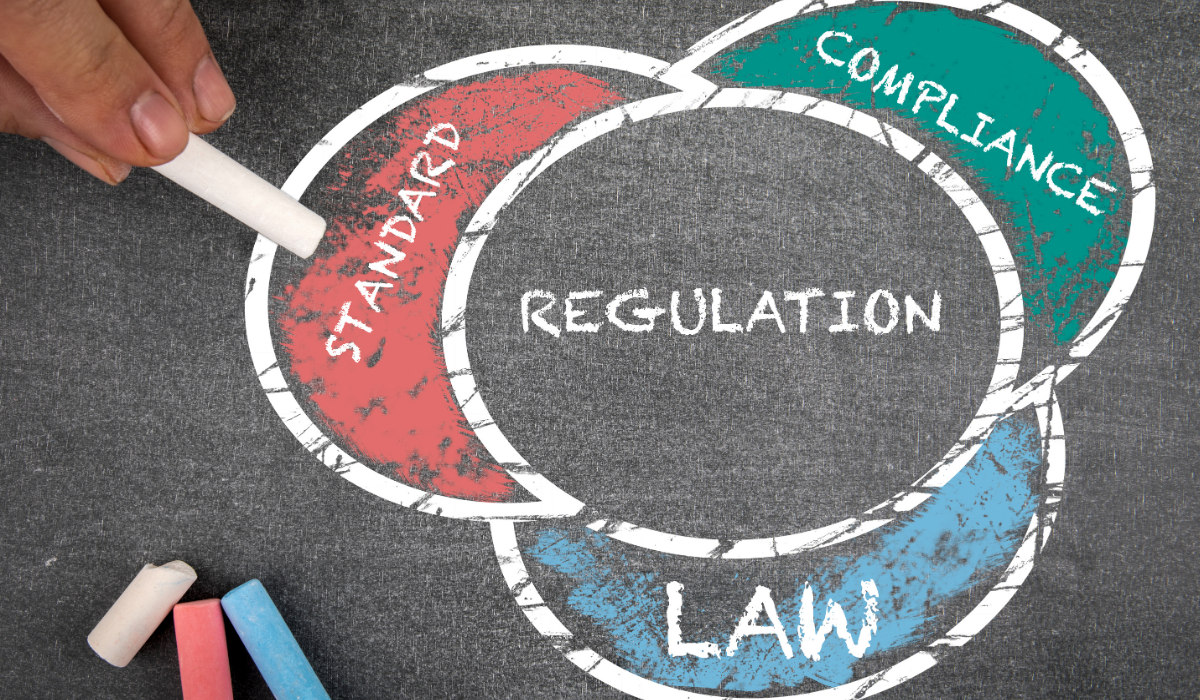Have you ever wondered how the UK regulates prop trading and its effects? This is about how prop trading firms are kept safe from risks. We’ll look at the rules from the Financial Conduct Authority (FCA). They make sure prop trading in the UK is safe and steady.
Key Takeaways:
- Prop trading, or proprietary trading, involves trading financial instruments or commodities using a firm’s own capital.
- In the UK, prop trading is subject to strict regulations enforced by the Financial Conduct Authority (FCA).
- The FCA has established guidelines and rules for prop trading firms to adhere to, covering risk management, capital requirements, compliance, reporting, and surveillance.
- The implementation of MiFID II has narrowed exemptions for prop traders and imposed additional requirements on algorithmic trading.
- Bovill is a compliance consultancy firm that offers comprehensive support to prop trading firms, helping them navigate regulatory requirements and meet their compliance obligations.
FCA Guidelines on Prop Trading
The Financial Conduct Authority (FCA) has set out clear rules for prop trading firms in the UK. These rules cover important aspects like risk management, capital needs, and meeting compliance. By following these guidelines, prop trading firms operate within the FCA’s set regulatory framework.
Risk management is a primary focus of the FCA’s guidelines. Companies must build strong systems to spot, assess, and reduce any trading risks. They are also required to have good internal checks, risk limits, and to keep a close eye on their risks.
Compliance with the rules is also key. Prop trading firms must obey all the laws and regulations, such as those against market abuse and money laundering. They do this by having detailed compliance programs, regularly checking their compliance, and quickly reporting any breaches.
Capital requirements are there to make sure prop trading firms have enough money for their trading, even if markets get volatile. They must keep a set amount of capital to cover any losses and keep the markets and investors safe.
Good reporting is vital to show what prop trading firms are doing and ensure the regulator can watch over them. Firms have to report their trades, their positions in the market, and the risks they face. They need to do this accurately and on time, sharing all the needed data with the FCA.
Further, the FCA keeps a close eye on prop trading with its surveillance efforts. They watch trading activities closely to spot and stop any illegal or unfair actions. This oversight helps keep the markets honest and safe for everyone involved.
Following the FCA’s rules isn’t just about legal duties. It’s also about building trust in the financial markets. Prop trading firms earn confidence by showing they do business openly and responsibly, at the highest standards expected by regulatory bodies.
| FCA Guidelines on Prop Trading | Key Areas |
|---|---|
| Risk management | Establish robust risk management systems and controls. |
| Compliance | Demonstrate compliance with relevant regulations and laws. |
| Capital requirements | Maintain adequate financial resources to support trading activities. |
| Reporting | Regularly report trading activities, positions, and risk exposures. |
| Surveillance | Subject to FCA monitoring and surveillance to detect market abuses. |
Regulatory Landscape for Prop Traders
In the UK, the rules for prop traders have changed a lot thanks to MiFID II. Market makers and others now need permission to trade. They must follow new rules, especially for trading with computers.
This new focus is on making computer trading safe and stable. Trading places must have strong rules in place. This is to keep the market safe from big risks. And prop trading companies must manage all risks well and follow strict rules.
Props trading firms in the UK must know and obey these rules. It’s key for them to keep up with the new must-dos. This ensures they stay on the right side of the law and keep doing business the right way.
“The implementation of MiFID II has significantly reshaped the regulatory landscape for prop traders in the UK. Compliance with the new licensing obligations, as well as the stringent rules surrounding algorithmic trading, is crucial for firms operating in this space.”
Compliance Requirements for Prop Trading Firms
Firms trading on behalf of their own money must be really careful in the UK. They need strong systems to manage risks and follow many rules, like:
- Getting the right licenses under MiFID II to trade properly in the UK.
- Reporting to watchdogs about their trading often is a must.
- Stopping bad trading behaviour to keep the market fair and clear.
- Doing risk checks and planning well to avoid big money losses.
- Having a solid plan to make sure they follow all the trading rules.
Dealing with these rules well and keeping up with any changes helps trading firms do well. They can handle the changing rules and keep their business safe.
| Compliance Requirements | Key Actions |
|---|---|
| Licensing | Obtain the necessary licenses under MiFID II to operate legally in the UK market. |
| Reporting | Regularly report trading activities to regulatory authorities, such as the FCA. |
| Market Abuse Prevention | Implement measures to prevent market abuse and ensure fair and transparent trading practices. |
| Risk Management | Establish effective risk management processes, including stress testing and scenario analysis. |
| Compliance Framework | Develop a robust compliance framework to ensure adherence to all regulatory requirements and guidelines. |
By meeting these rules and setting up strong ways to keep to them, prop trading firms lessen their risks. They can do well in the UK market.
Risks and Benefits of Prop Trading
Prop trading, or proprietary trading, has its upsides and downsides for those involved. It’s vital for these firms to grasp these elements. This understanding helps them thrive in the market while avoiding potential risks.
Risks of Prop Trading
Prop trading comes with its own set of dangers. These include:
- Market Volatility: It involves market ups and downs. This can bring big wins or losses very quickly.
- Overloading of Trading Venues: Too much trading at once can stress trading platforms. This may lead to execution problems.
- Algorithmic Trading Malfunctions: If the technology fails in algorithmic trading, it can cause big problems. Mistakes in the programming can lead to wrong trades.
- Potential for Market Abuse: There’s a risk from abusing the market, like insider trading. Such practices could lead to legal issues and bad fame.
Benefits of Prop Trading
However, there are also good sides to prop trading. These can be:
- Increased Liquidity: It can make the market more active. This is good for everyone as it makes trading smoother.
- Narrower Spreads: With smaller gaps between buy and sell prices, traders can make more money. They can benefit from these tight margins.
- Better Execution of Orders: Prop traders can get orders done well. They have direct access to the markets and use smart trading methods to avoid hiccups.
Yet, it’s crucial for prop trading firms to handle risks wisely. They must follow rules, keep standards high, and focus on good practice. This is how they can enjoy all the good things about proprietary trading while staying safe.
How Bovill Supports Proprietary Trading Firms
Bovill is a top compliance consultancy that helps proprietary trading firms. They provide services that reduce the burden of compliance. This allows the firms to work smoothly within the complex rules.
- Assistance with Authorization Process: Bovill guides new prop trading firms through the authorization process. They ensure firms meet all rules. This helps firms start in the market with ease.
- Regulatory Compliance Advisory: Bovill offers ongoing advice on staying compliant. They keep firms informed of new regulations. They help put in place strategies that work.
- Global Regulatory Requirements: Bovill uses its global reach to help firms understand rules in various places. This is key in trading across borders.
- Compliance Reviews: They do detailed checks to see if firms meet regulatory standards. They then suggest areas to improve. This helps keep firms operating within the law.
- Market Abuse Risk Assessments: Bovill works with firms to create strong risk assessments. This ensures they follow anti-abuse rules and protect against wrongdoing.
- Short-term Resourcing Options: For firms needing extra help with compliance, Bovill offers temporary solutions. This fills in any gaps in staff. It keeps compliance tasks running smoothly.
With Bovill’s help, prop trading firms can concentrate on their main work. Bovill’s specific help and broad support tackle compliance needs. This lets firms perform rightly, sustainably, and meet all regulations in the trading world.
Global Presence and Expertise
Bovill is a top compliance consultancy firm with a broad global reach. They have offices in the UK, US, Hong Kong, and Singapore. This means Bovill can support trading firms worldwide.
With offices in major financial spots, Bovill offers expert help to trading firms. They know the rules and help these firms follow them. Their team is experienced and knows the regulations well.
“Our global presence allows us to seamlessly assist proprietary trading firms in meeting their compliance obligations in different jurisdictions, ensuring they can operate confidently and securely.”
Bovill’s spread helps them not only know the rules well but also form strong local connections. This keeps them updated on the newest compliance trends and advice.
Comprehensive and Tailored Compliance Support
Bovill’s reach reflects its dedication to offering detailed compliance help worldwide. This isn’t just because they have offices everywhere.
- Bovill’s experts work closely with trading firms to know their challenges.
- They use their deep knowledge to craft personalised compliance plans.
- Firms can trust Bovill to help them follow the complex rules worldwide.
Bovill’s presence and expertise help trading firms stay compliant and grow safely.
Bovill Offices
| Location | Address |
|---|---|
| United Kingdom | 123 Regent Street, London, W1B 4HG |
| United States | 456 Financial Avenue, New York, NY 10001 |
| Hong Kong | 789 Central Street, Central, Hong Kong |
| Singapore | 987 Orchard Road, Singapore, 123456 |
Importance of ICAAP Review
Bovill knows how crucial ICAAP reviews are for prop trading firms. The ICAAP checks if a company can cover its financial needs and handle risks well. It’s a must-do under the rules.
Bovill is here to give top-notch help with ICAAP reviews. They make sure these firms follow the rules. And they help them make any changes needed.
Conclusion
The Financial Conduct Authority (FCA) oversees proprietary trading in the UK. Their aim is to keep prop trading firms safe and solid. Things like MiFID II and a big focus on risk and compliance make it tough to keep up with rules. But Bovill is here to help, making sure firms are on track and can work legally in the UK.
Bovill and the FCA work hand in hand to guide prop trading firms through complex rules. Bovill’s deep knowledge and global reach let them give just the right compliance help, no matter where a firm is based. They aid with getting permission, give advice on following the rules, and check if firms are meeting requirements properly.
Bovill equips prop trading firms to handle changing rules and keep risks low. Following UK’s strict regulations means these firms can avoid trouble and enjoy the perks of prop trading. This includes better deals and more money to trade with. Bovill’s know-how and advice are crucial for prop trading firms to succeed despite tough competition.
FAQ
What is proprietary trading?
Proprietary trading, or prop trading, is when a firm uses its own money to trade. They deal with financial items or goods.
What regulations govern prop trading in the UK?
In the UK, the Financial Conduct Authority (FCA) imposes strict rules on prop trading.
What guidelines does the FCA provide for prop trading firms?
The FCA set rules on risk, how much money they need, and how they must act, among others. Prop trading firms must follow these.
How has the regulatory landscape for prop traders changed in recent years?
With MiFID II, more rules came in for prop traders. They have less exceptions and must get certain licenses now.
What are the risks and benefits of prop trading?
Prop trading risks include sudden market changes and errors in trading systems. Benefits are more cash flow and better deals for customers.
How does Bovill support proprietary trading firms?
Bovill helps these firms handle their legal duties. They offer help to get authorised, advice, checks on their practices, and short-term help when needed.
Where does Bovill have a presence?
Bovill is in the UK, US, Hong Kong, and Singapore. This lets them offer assistance with rules in many places to prop trading firms.
Why is ICAAP review important for prop trading firms?
An ICAAP review is crucial for these firms. It ensures they have enough money, identify risks, and follow rules well.
What are the regulatory implications for prop trading in the UK?
The FCA oversees prop trading in the UK. Meeting all the rules is vital for these firms to work legally and safely.








